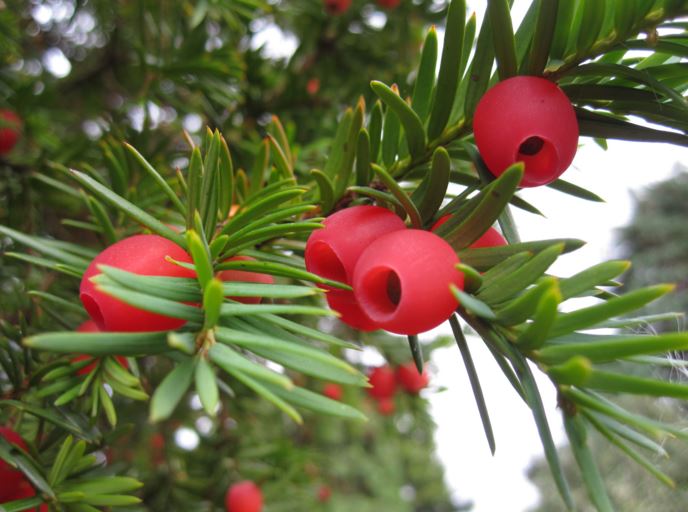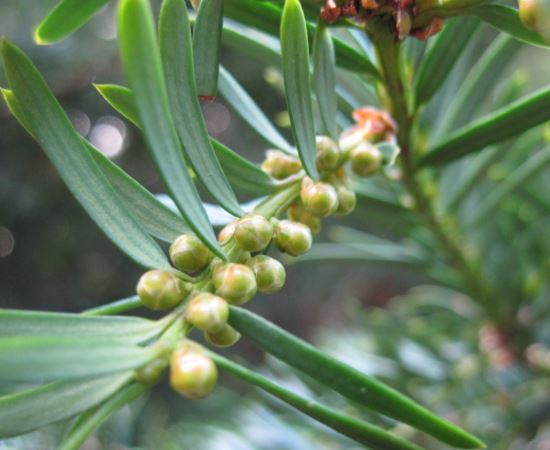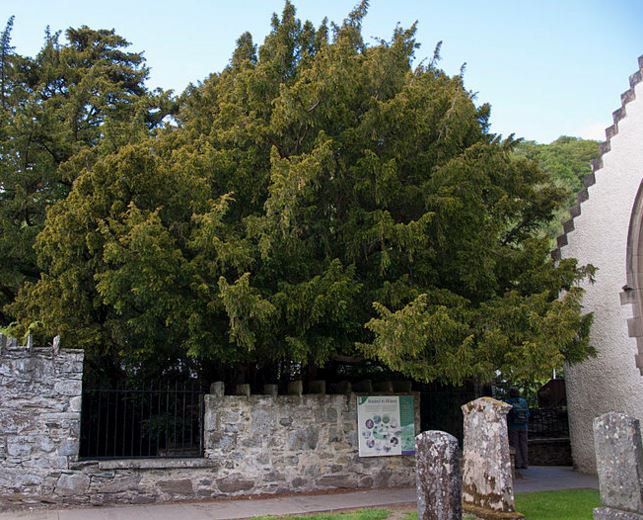A 5,000-year-old Fortingall Yew in Perthshire, Scotland, possibly the oldest tree in Europe, is changing sex, a scientist from the Royal Botanic Garden Edinburgh informed. The ‘male’ yew, which existed before Stonehenge and the Great Pyramid of Giza were built, has suddenly started doing something only female yews do – sprouting bright, red berries.
Yew trees are either male or female. Sexing them is generally easy in autumn and winter. Males have small, spherical structures that release pollen clouds when they mature. Females have bright, red berries in autumn and winter.
For virtually all its life, the Fortingall Yew in Perthshire has been male – that is, until now.
 The ‘male’ yew started sprouting these berries, showing the distinctive fleshy aril (seed covering) that surrounds a single seed. (Image: stories.rbge.org.uk)
The ‘male’ yew started sprouting these berries, showing the distinctive fleshy aril (seed covering) that surrounds a single seed. (Image: stories.rbge.org.uk)
Male tree suddenly sprouts berries
Dr Max Coleman, who works at the Royal Botanic Garden Edinburgh as a science communicator, said:
“It was, therefore, quite a surprise to me to find a group of three ripe red berries on the Fortingal yew this October when the rest of the tree was clearly male.”
Yews, as well as other conifers that have different, separate sexes, have been known to switch sex. Usually, this switch does not occur throughout the entire tree, but on part of the crown.
The change is evident on one small branch in the outer part of the crown of this Fortingall Yew, which is now behaving as female.
Yew conservation project
Scientists have collected three seeds as part of an ambitious program to conserve the genetic diversity of yew trees across Europe, Western Asia, the Caucasus, and North Africa.
 Male cones on the yew are small and spherical and shed lots of pollen when they mature during winter and early spring. (Image: Royal Botanic Garden Edinburgh)
Male cones on the yew are small and spherical and shed lots of pollen when they mature during winter and early spring. (Image: Royal Botanic Garden Edinburgh)
As part of the project, the current perimeter hedges at the Royal Botanic Garden Edinburgh (RBGE) will be replaced by a conservation yew hedge consisting of cuttings and seed collections from wild populations and significant old trees like the Fortingall Yew in Perthshire.
The project started in 2014, with the first phases of planting in the ground. When completed, the hedge will encircle the RBGE with an amazing genetic resource of more than 2,000 individual trees, each with its own story to tell.
This hedge may well be the biggest conservation hedge of its kind anywhere on Earth.
 The Fortingall Yew in Perthshire was around 3,000 years before Jesus Christ was born. (Image: Wikipedia)
The Fortingall Yew in Perthshire was around 3,000 years before Jesus Christ was born. (Image: Wikipedia)
As it matures, it will look like no other existing yew hedge. It will display a range of features reflecting the genetic diversity of so many individual trees.
Dr. Coleman said:
“The Fortingall Yew itself will be represented in the hedge and so too, all being well, will its offspring via the curious ability of yew trees to change sex.”
Video – The Fortingall Yew in Perthshire
In this video, the speaker, whose ancestors lived in the village near this 5,000-year-old tree for 6 centuries until they emigrated in the 1840s, talks about the Fortingall Yew.
